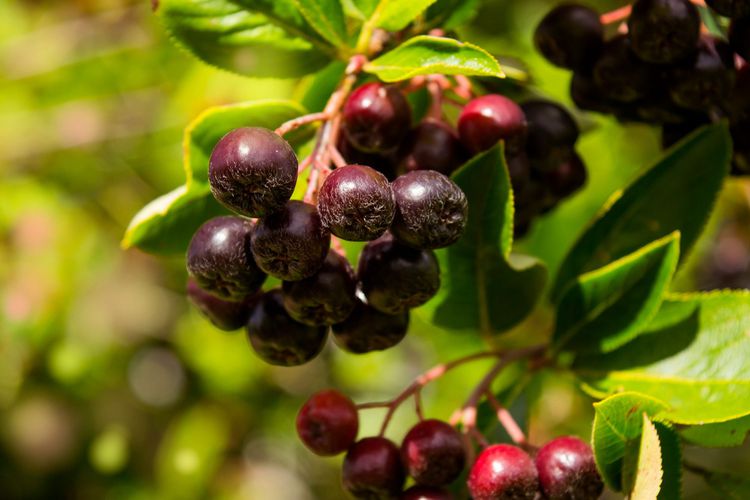Health Benefits of Huckleberries
What are the health benefits of huckleberries?
Huckleberries are small, dark berries that are similar in appearance and taste to blueberries. They are native to North America and have been used for centuries by Native American tribes for their medicinal properties. Huckleberries are rich in nutrients and antioxidants, which contribute to their potential health benefits. Some of the key health benefits of huckleberries include:
- Rich in Antioxidants: Huckleberries are packed with antioxidants, including anthocyanins, which give them their deep purple color. Antioxidants help protect your cells from damage caused by free radicals and may reduce the risk of chronic diseases like heart disease, cancers such as breast cancer, colorectal cancer, prostate cancer, and skin cancer, and neurodegenerative disorders such as Alzheimer’s disease and Parkinson’s disease.
- Anti-Inflammatory Properties: Some studies suggest that the antioxidants in huckleberries may have anti-inflammatory effects, which could help reduce inflammation in the body and lower the risk of chronic diseases associated with inflammation such as arthritis.
- Heart Health: The high levels of antioxidants and fiber in huckleberries can benefit heart health by reducing the risk of heart disease. Antioxidants may help lower blood pressure and improve cholesterol levels, while fiber can help regulate cholesterol levels and improve heart health.
- Improved Digestive Health: Huckleberries are a good source of dietary fiber, which can help promote digestive health by preventing constipation and supporting a healthy gut microbiome.
- Eye Health: The antioxidants lutein and zeaxanthin found in huckleberries may help protect the eyes from age-related macular degeneration and cataracts by reducing oxidative stress and inflammation in the eye.
- Brain Health: Some animal studies suggest that the antioxidants in huckleberries may help protect the brain from age-related decline and neurodegenerative diseases like Alzheimer’s disease by reducing inflammation and oxidative stress in the brain.
- Immune System Support: The vitamin C content in huckleberries can help support a healthy immune system by stimulating the production of white blood cells and supporting the body’s natural defenses against infections and illnesses.
- Blood Sugar Control: Some research suggests that huckleberries may help regulate blood sugar levels and improve insulin sensitivity, which could benefit individuals with diabetes or those at risk of developing the disease.
- Weight Management: Huckleberries are low in calories and fat but high in fiber, which can help you feel full and satisfied, making them a good choice for weight management.
- Cancer Prevention: Some studies suggest that the antioxidants in huckleberries may have anti-cancer properties and could help prevent the growth and spread of cancer cells, though more research is needed in this area.
Overall, huckleberries are a nutritious fruit that can be a healthy addition to a balanced diet. Incorporating huckleberries into your diet, along with other antioxidant-rich foods, may help promote overall health and reduce the risk of chronic diseases.
What are the health risks of huckleberries?
Huckleberries are generally safe for most people when consumed in moderation as a food. However, there are a few potential health risks associated with huckleberries:
- Allergic Reactions: Some individuals may be allergic to huckleberries or other berries in the same family, such as blueberries or cranberries. Allergic reactions to huckleberries can range from mild symptoms like itching and swelling to more severe reactions like difficulty breathing or anaphylaxis in rare cases.
- Gastrointestinal Issues: Eating large amounts of huckleberries or consuming them in an unripe or spoiled state may cause digestive issues such as stomach upset, gas, bloating, or diarrhea in some individuals, especially those with sensitive stomachs or digestive disorders.
- Interactions with Medications: Huckleberries may interact with certain medications, especially blood thinners like warfarin (Coumadin) or antiplatelet drugs. The high vitamin K content in huckleberries can interfere with the effects of these medications, potentially increasing the risk of bleeding.
- Toxicity Concerns: While huckleberries are generally safe to eat, consuming large quantities of certain types of berries, including huckleberries, that contain toxic compounds or alkaloids may lead to poisoning. It is important to properly identify huckleberries and other wild berries before consumption and to avoid eating berries from unknown or potentially contaminated sources.
- Pesticide Residues: Like other fruits, huckleberries may contain pesticide residues if not organically grown or properly washed before consumption. To minimize exposure to pesticides, it is advisable to choose organic huckleberries whenever possible or to wash conventionally grown berries thoroughly before eating.
Overall, huckleberries are a nutritious fruit with many potential health benefits, but it is important to consume them in moderation and be aware of any potential risks, especially if you have underlying health conditions or are taking medications. If you have any concerns about consuming huckleberries, it is best to consult with a healthcare provider or a registered dietitian.




